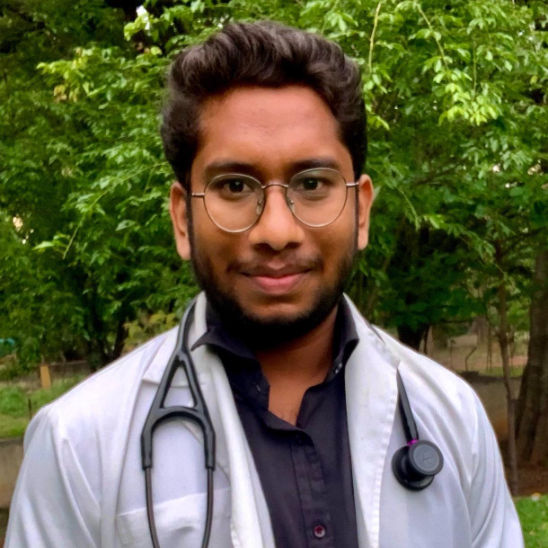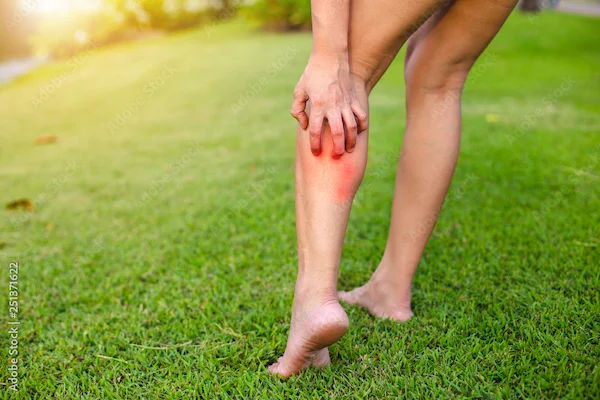Understanding Behcet's Disease and Its Management
Behcet's disease is a rare autoimmune condition causing mouth sores, eye inflammation, and more. Learn its symptoms, diagnosis, and how to manage it effectively with expert care.

Written by Dr. Siri Nallapu
Reviewed by Dr. Shaik Abdul Kalam MD (Physician)
Last updated on 21st Aug, 2025

Behcet's disease is a rare and complex condition that can affect different parts of the body, causing inflammation and discomfort. While it may sound intimidating, understanding the disease, its symptoms, and management strategies can help patients lead a better quality of life. This article aims to provide simple, compassionate, and informative guidance for those affected by Behcet's disease.
What is Behcet's Disease?
Behcet's disease, also known as Behcet's syndrome, is a chronic inflammatory disorder that primarily affects blood vessels. It causes recurring sores in the mouth and genital areas, inflammation in the eyes, skin rashes, and joint pain. In severe cases, it can also impact the nervous system, digestive tract, and major blood vessels.
The exact cause of Behcet's disease is unknown, but it is believed to be an autoimmune condition, where the body's immune system mistakenly attacks healthy tissues. Genetic and environmental factors may also play a role.
Common Symptoms of Behcet's Disease
Behcet's disease affects people differently, but some common symptoms include:
- Mouth Sores (Aphthous Ulcers) – Painful, recurring ulcers inside the mouth, similar to canker sores.
- Genital Sores – Painful ulcers on the genitals that may leave scars.
- Eye Inflammation (Uveitis) – Redness, pain, and blurred vision due to swelling in the eyes.
- Skin Problems – Acne-like bumps or red, tender nodules on the skin.
- Joint Pain – Swelling and pain in the knees, ankles, wrists, or elbows.
- Digestive Issues – Abdominal pain, diarrhea, or bleeding in severe cases.
- Neurological Symptoms – Headaches, confusion, or stroke-like symptoms if the brain is affected.
Symptoms may come and go in flare-ups, making the condition unpredictable.
How Behcet's Disease Affects Health
Since Behcet's disease involves inflammation in blood vessels (vasculitis), it can lead to complications such as:
- Vision problems (if eye inflammation is not treated promptly).
- Blood clots (due to inflamed veins).
- Aneurysms (weakened blood vessel walls).
- Digestive ulcers (causing pain and bleeding).
Early diagnosis and proper management are crucial to prevent severe complications.
Consult Top Specialists
Diagnosis of Behcet's Disease
There is no single test to confirm Behcet's disease. Doctors diagnose it based on symptoms, medical history,
and ruling out other conditions. Tests may include:
- Blood tests (to check inflammation levels).
- Skin pathergy test (a small needle prick to see if a bump forms).
- Eye examination (by an ophthalmologist).
- Imaging tests (MRI or CT scans if neurological symptoms are present).
If you experience recurring mouth sores along with other symptoms, consult a rheumatologist for evaluation.
Managing Behcet's Disease
While there is no cure for Behcet's disease, treatments focus on reducing inflammation, relieving symptoms, and preventing complications. Management includes:
1. Medications
- Corticosteroids (to control inflammation).
- Immunosuppressants (to calm the overactive immune system).
- Biologic therapies (for severe cases).
- Topical treatments (for mouth and genital ulcers).
Always follow your doctor’s prescription and never stop medications abruptly.
2. Lifestyle Adjustments
- Oral Hygiene – Use a soft toothbrush and mild mouthwash to prevent mouth sores.
- Eye Care – Protect your eyes from bright light and follow up with an eye specialist.
- Skin Protection – Avoid injuries that may trigger skin lesions.
- Stress Management – Stress can trigger flare-ups, so practice relaxation techniques like yoga or meditation.
3. Diet and Nutrition
- Anti-inflammatory foods – Include fruits, vegetables, whole grains, and omega-3-rich foods (like fish and
flaxseeds). - Avoid spicy or acidic foods – These can worsen mouth ulcers.
- Stay hydrated – Drink plenty of water to keep mucous membranes healthy.
4. Regular Medical Check-ups
Since Behcet's disease can affect multiple organs, regular visits to a rheumatologist, ophthalmologist, and other
specialists are essential.
When to Seek Help
If you experience:
- Sudden vision changes
- Severe headaches or neurological symptoms
- Persistent high fever
- Blood in stool or severe abdominal pain
Seek immediate medical attention.
Living with Behcet's Disease
Living with a chronic condition can be challenging, but with the right care, many people with Behcet's disease
lead fulfilling lives. Here are some tips:
- Join support groups – Connecting with others who have Behcet's can provide emotional support.
- Stay active – Gentle exercises like walking or swimming can help reduce joint pain.
- Educate loved ones – Helping family and friends understand your condition can improve support.
How Apollo24|7 Can Help
If you suspect you have Behcet's disease or need expert care, Apollo24|7 offers:
- Consultations with rheumatologists (specialists in autoimmune diseases).
- Diagnostic tests (blood work, imaging, and eye exams).
- Personalized treatment plans to manage symptoms effectively.
You can easily book a consultation or schedule a test through the Apollo24|7 app or website.
Final Thoughts
Behcet's disease may be unpredictable, but with proper medical care and lifestyle adjustments, symptoms can be managed effectively. If you or a loved one is experiencing symptoms, don’t hesitate to seek medical advice. Early intervention can make a significant difference in quality of life.Consult Top Specialists
Consult Top Specialists

Dr. Anand Ravi
General Physician
2 Years • MBBS
Bengaluru
PRESTIGE SHANTHINIKETAN - SOCIETY CLINIC, Bengaluru

Dr. Tanmaya Kumar Sahu
General Physician/ Internal Medicine Specialist
12 Years • MBBS, MD ( Internal Medicine )
Bhubaneswar
Apollo Hospitals Old Sainik School Road, Bhubaneswar

Dr. Sundeep Kumar Upadhyaya
Rheumatologist
30 Years • MBBS, MD, DM
Delhi
Apollo Hospitals Indraprastha, Delhi
(225+ Patients)

Dr. Zulkarnain
General Physician
2 Years • MBBS, PGDM, FFM
Bengaluru
PRESTIGE SHANTHINIKETAN - SOCIETY CLINIC, Bengaluru

Dr. Thorana Prakash M
General Physician
2 Years • MBBS
Bengaluru
PRESTIGE SHANTHINIKETAN - SOCIETY CLINIC, Bengaluru
Consult Top Specialists

Dr. Anand Ravi
General Physician
2 Years • MBBS
Bengaluru
PRESTIGE SHANTHINIKETAN - SOCIETY CLINIC, Bengaluru

Dr. Tanmaya Kumar Sahu
General Physician/ Internal Medicine Specialist
12 Years • MBBS, MD ( Internal Medicine )
Bhubaneswar
Apollo Hospitals Old Sainik School Road, Bhubaneswar

Dr. Sundeep Kumar Upadhyaya
Rheumatologist
30 Years • MBBS, MD, DM
Delhi
Apollo Hospitals Indraprastha, Delhi
(225+ Patients)

Dr. Zulkarnain
General Physician
2 Years • MBBS, PGDM, FFM
Bengaluru
PRESTIGE SHANTHINIKETAN - SOCIETY CLINIC, Bengaluru

Dr. Thorana Prakash M
General Physician
2 Years • MBBS
Bengaluru
PRESTIGE SHANTHINIKETAN - SOCIETY CLINIC, Bengaluru
.webp)
_0.webp)


